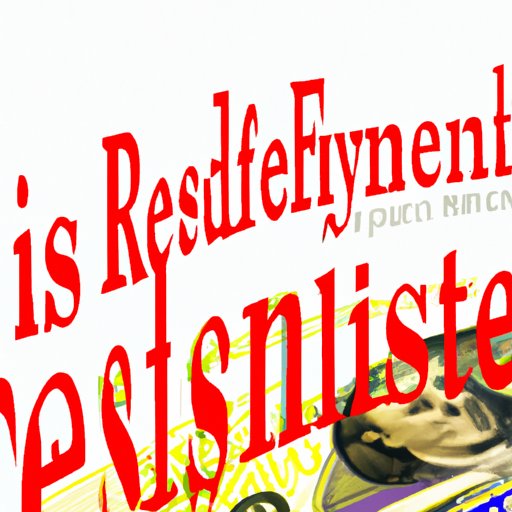Introduction
The 2008 financial collapse was one of the worst economic crises in modern history. The collapse was caused by a number of factors, including risky lending practices, overleveraged financial institutions, and a lack of government oversight. As a result, many banks and businesses went bankrupt, and millions of people lost their jobs, homes, and savings. In the wake of this crisis, the Federal Reserve took several measures to respond to the crisis and prevent further economic damage.
The purpose of this article is to explore the role of the Federal Reserve in responding to the financial collapse. We will examine the Federal Reserve’s actions during the crisis, understand the monetary policy changes it implemented in response, and assess the impact of its actions. By the end of this article, readers should have a better understanding of the role the Federal Reserve played in responding to the 2008 financial collapse.
The Role of the Federal Reserve in Preventing and Responding to the Financial Crisis
In order to prevent and respond to the financial crisis, the Federal Reserve took several measures. First, it lowered interest rates to make borrowing easier and more affordable. This allowed businesses and individuals to access credit at lower costs, which helped them stay afloat during the crisis. Second, the Federal Reserve provided emergency loans to banks and other financial institutions. This infusion of money helped stabilize the financial system and prevented further damage.
In addition to these measures, the Federal Reserve also implemented several new monetary policies. For example, it began purchasing large amounts of securities in order to increase the amount of money available for lending. This increased the liquidity of the financial system, making it easier for people to access credit. The Federal Reserve also made changes to its reserve requirements, which reduced the amount of money banks had to keep on hand. This gave banks more money to lend out, helping to stimulate the economy.
Assessing the Impact of the Federal Reserve’s Actions During the Financial Collapse
It is clear that the Federal Reserve took several measures to respond to the 2008 financial collapse. But how effective were these measures? According to a study by the International Monetary Fund (IMF), the Federal Reserve’s actions “played an important role in preventing a deeper crisis and in promoting the recovery.” The study found that the Federal Reserve’s interventions helped to stabilize the financial system, reduce borrowing costs, and increase liquidity. These measures ultimately helped to mitigate the damage caused by the financial collapse.
However, not all of the Federal Reserve’s actions had positive effects. For example, the IMF study found that the Federal Reserve’s decision to purchase large amounts of securities may have caused prices to rise too quickly, leading to asset bubbles and inflation. Additionally, the Federal Reserve’s changes to its reserve requirements may have contributed to an increase in risky lending practices.
Conclusion
In conclusion, the Federal Reserve took several measures to respond to the 2008 financial collapse. Its actions helped to stabilize the financial system and mitigate the damage caused by the crisis. However, these measures also had some drawbacks, such as causing asset bubbles and increasing risky lending practices. Overall, the Federal Reserve’s actions were largely successful in preventing further economic damage and promoting economic recovery.
This article has explored the role of the Federal Reserve in responding to the financial collapse. We examined the Federal Reserve’s actions during the crisis, understood the monetary policy changes it implemented in response, and assessed the impact of its actions. By understanding the Federal Reserve’s role in responding to the financial collapse, we can better prepare for future economic crises.
(Note: Is this article not meeting your expectations? Do you have knowledge or insights to share? Unlock new opportunities and expand your reach by joining our authors team. Click Registration to join us and share your expertise with our readers.)
